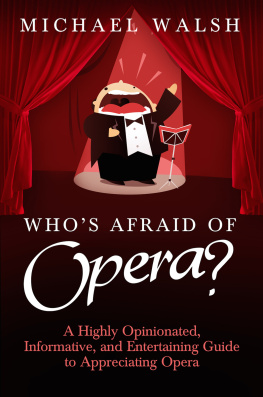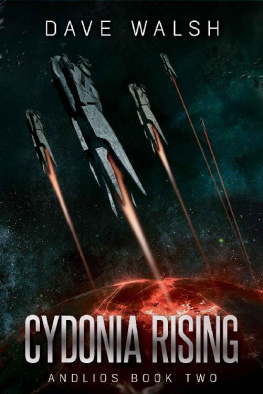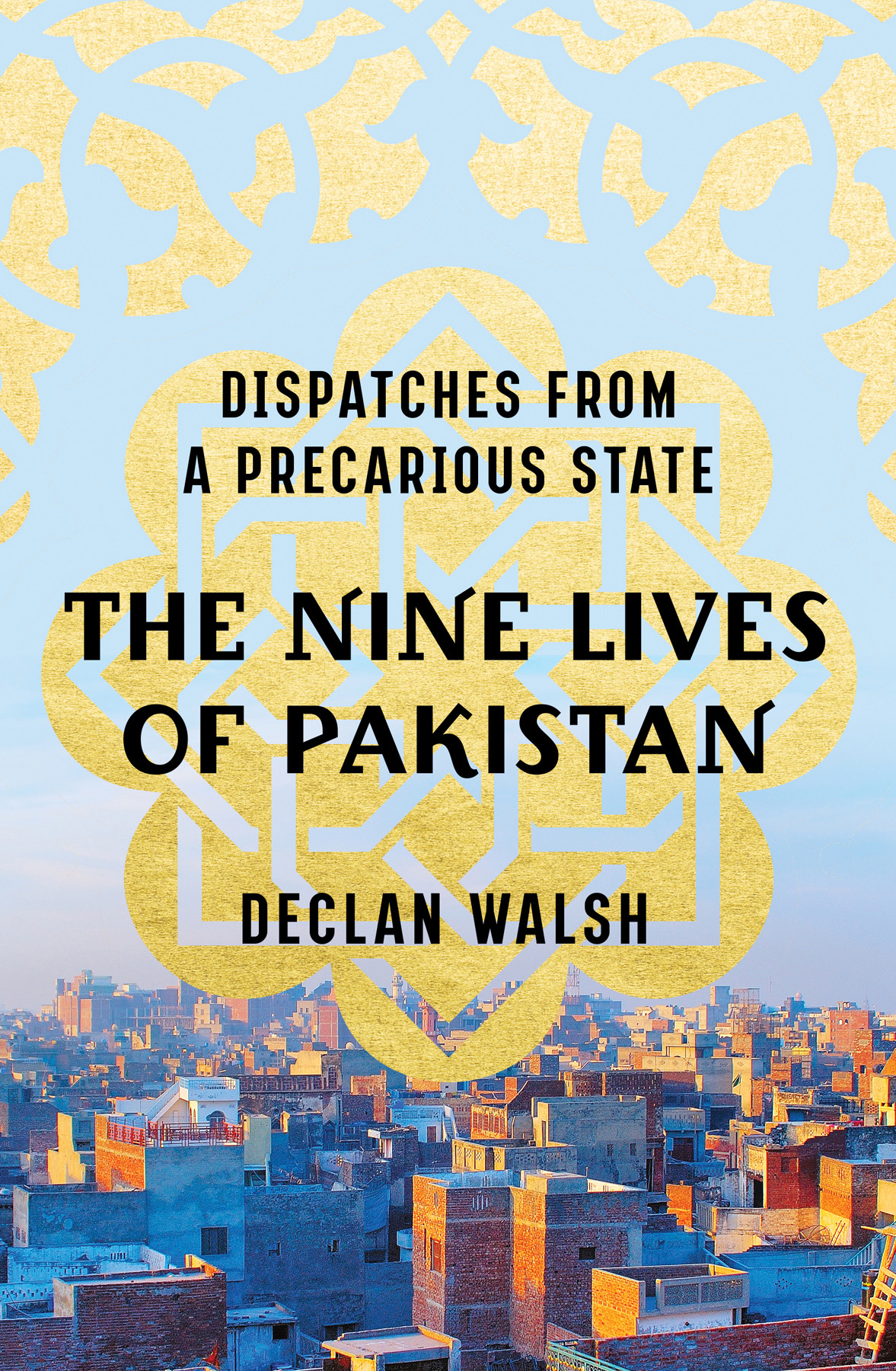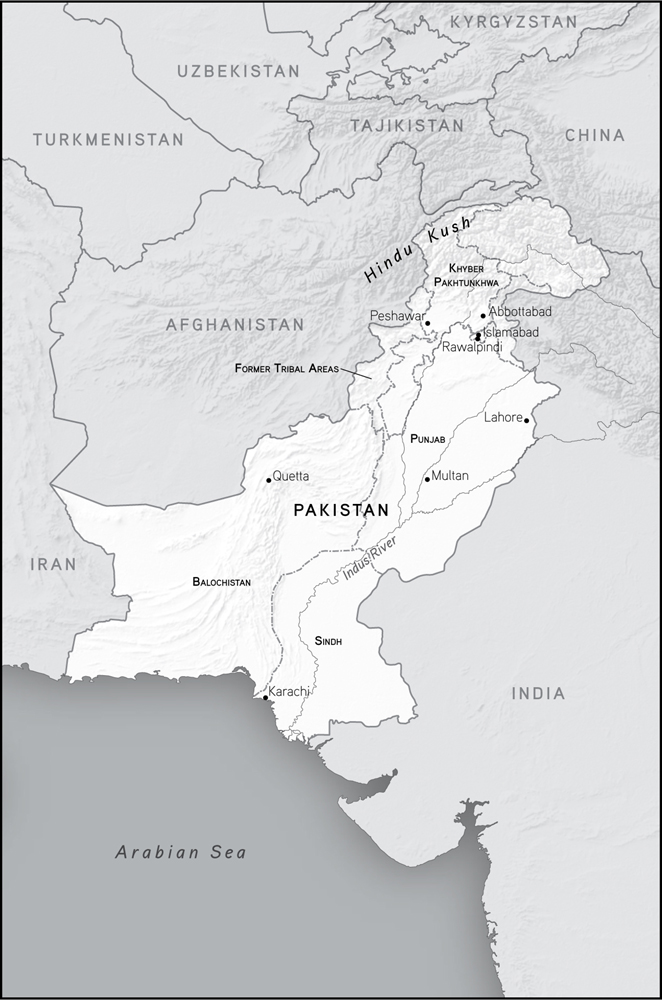Contents
Guide
Page List
Mourners outside the Bhutto family mausoleum during the funeral of Benazir Bhutto in December 2007
THE NINE LIVES
OF PAKISTAN
Dispatches from a Precarious State
Declan Walsh

Copyright 2020 by Declan Walsh
All rights reserved
First Edition
For information about permission to reproduce selections from this book, write to Permissions, W. W. Norton & Company, Inc., 500 Fifth Avenue, New York, NY 10110
For information about special discounts for bulk purchases, please contact W. W. Norton Special Sales at specialsales@wwnorton.com or 800-233-4830
Jacket design: Jaya Miceli
Jacket images: (Islamic pattern) azat1976 / Getty Images; (view of Lahore) Photography By Waheed / Getty Images
The Library of Congress has cataloged the printed edition as follows:
Names: Walsh, Declan, author.
Title: The nine lives of Pakistan : dispatches from a precarious state / Declan Walsh.
Description: First edition. | New York, NY : W. W. Norton & Company, 2020. | Includes bibliographical references and index.
Identifiers: LCCN 2020008294 | ISBN 9780393249910 (hardcover) | ISBN 9780393249927 (epub)
Subjects: LCSH: Walsh, DeclanTravelPakistan. | PakistanDescription and travel. | PakistanHistory.
Classification: LCC DS377 .W35 2020 | DDC 954.91dc23
LC record available at https://lccn.loc.gov/2020008294
W. W. Norton & Company, Inc., 500 Fifth Avenue, New York, N.Y. 10110
www.wwnorton.com
W. W. Norton & Company Ltd., 15 Carlisle Street, London W1D 3BS
To Eamonn and Samuel
Who is without sin in the city of my beloved
Go Forth in the Streets Today in Your Fetters
by Faiz Ahmed Faiz
CONTENTS
May 2013
On my last night in Pakistan, the angels come to spirit me away.
It is a balmy summer evening in Lahore, the ancient city of Mughal splendour, down by the border with India. Lying on my bed in the Avari, Lahores grandest hotel, I stare at the ceiling and listen. Sounds of jubilation drift in: honks, hoots and cries; the urgent stampede of hundreds of feet. An historic election is under way, the kind that promises to reshape the destiny of a nation, and this is the street music of democracy, Pakistani style. Tens of millions of people have voted, forming impatient lines or elbowing their way into polling stations across this vast country, from the twinkling, snow-dusted Himalayas to muggy villages on the Arabian Sea. Here in Lahore, as the sun dips low, the most fervent citizens are parading down the Mall, the citys elegant tree-lined boulevard. They pass under my window men tottering on cheap motorbikes, three to a seat, or scampering past on foot, waving placards emblazoned with images of cricket bats, tigers and arrows symbols that help illiterate voters identify their chosen party.
On my phone, I scroll through scattered reports of election-day trouble: a gunfight outside a polling station in rural Punjab; a Taliban bombing in the port city of Karachi that killed eleven; and a clash between rival political factions in the restive province of Balochistan. Compared with the chaos of recent years, however, this is small-scale violence, and on the whole this election is shaping up to be a startling success. Pakistanis have voted in record numbers; the main parties have promised to accept the result; a winner is emerging. On my television, the prime-time anchors, gabby men in shiny suits, stride excitedly before giant screens, making feverish predictions.
But the triumph of the day transcends any one party. For the first time in Pakistans history, an elected, civilian-led government has completed its term of office, and is about to hand power to another one. It might seem a small achievement, but in Pakistan it is stupendously good news. For sixty years, Pakistani leaders have departed power in handcuffs or coffins, expelled by military coups, rigged votes or lurid assassinations. A relatively clean vote: this is novel. Across town at the home of a well-known lawyer, my Pakistani friends are glued to the TV, exhilarated witnesses of history in motion, trading gossip and sipping bootleg Scotch. I wish I could join them. But I cant.
For one thing, a towering man with a sullen face stands outside my room, preventing me from leaving. His colleague is stationed at the end of the corridor, next to the lift. Two more are positioned in the lobby. They work for Inter-Services Intelligence, the militarys powerful spy agency, known as the ISI. Plainclothes ISI operatives can be found in towns and cities across Pakistan, low-key but ubiquitous, like pigeons on a power line. With experience, it is easy to spot them, with their tinted-window jeeps, hand-held radio sets and air of unspoken menace. In Urdu, Pakistanis call them farishtay, or angels a double-edged euphemism that refers both to the traditional white longshirts typically worn by ISI men, and to the vast uncircumscribed powers at their disposal.
The angels, as everyone knows, can knock on any door, flout any law, question or harass or even abduct any citizen. Tonight, I am the object of their attentions. After nine years in Pakistan, I have been ordered to leave. Their job is to ensure that I go.

The trouble started three days earlier in the capital, Islamabad. I was at a pre-election party hosted by an American friend, where foreign diplomats and well-heeled Pakistanis nibbled on seekh kebabs, when my phone rang with an anonymous number. The caller announced himself as a police officer and ordered me home immediately. He offered no explanation. I arrived home after midnight to find two vans filled with police officers parked at my gate. An older bearded man, in civilian clothes, stepped forward and handed me an envelope marked By Special Messenger. He urged me to open it. It is informed that your visa is hereby cancelled in view of your undesirable activities, read a letter on government stationery. You are therefore advised to leave the country within 72 hours.
The Special Messenger flashed me an awkward smile and then, in the finest tradition of subcontinental bureaucracy, politely asked me to sign for my own expulsion order.
Bewildered, I went inside. I had been working as a correspondent in Pakistan for almost a decade, first with the Guardian and then the New York Times. It was a long time, certainly; foreign reporters usually cycled out after three or four years. But I didnt see this coming.
Certainly, there had been difficulties. The Pakistani security services tapped my phone and intercepted my email. I received threats of legal action, often for outlandish sums of money in one case, by a retired military dictator demanding $5 million. Months earlier, Id received a death threat from someone who claimed to be with the Taliban. (Next time we will take action, he said.) Pakistani journalists who helped me had been abducted and beaten by the security forces; one had been forced into exile. But I had grown to love Pakistan, too a country of hidden delights, endearing absurdities and some of the closest friendships I had ever experienced. My work took me to corners of heart-stopping beauty and plunged me into strange, inspiring or heart-rending situations. I had made my peace with Pakistan, and I thought Pakistan had made its peace with me. Undesirable activities: what did that mean?


















